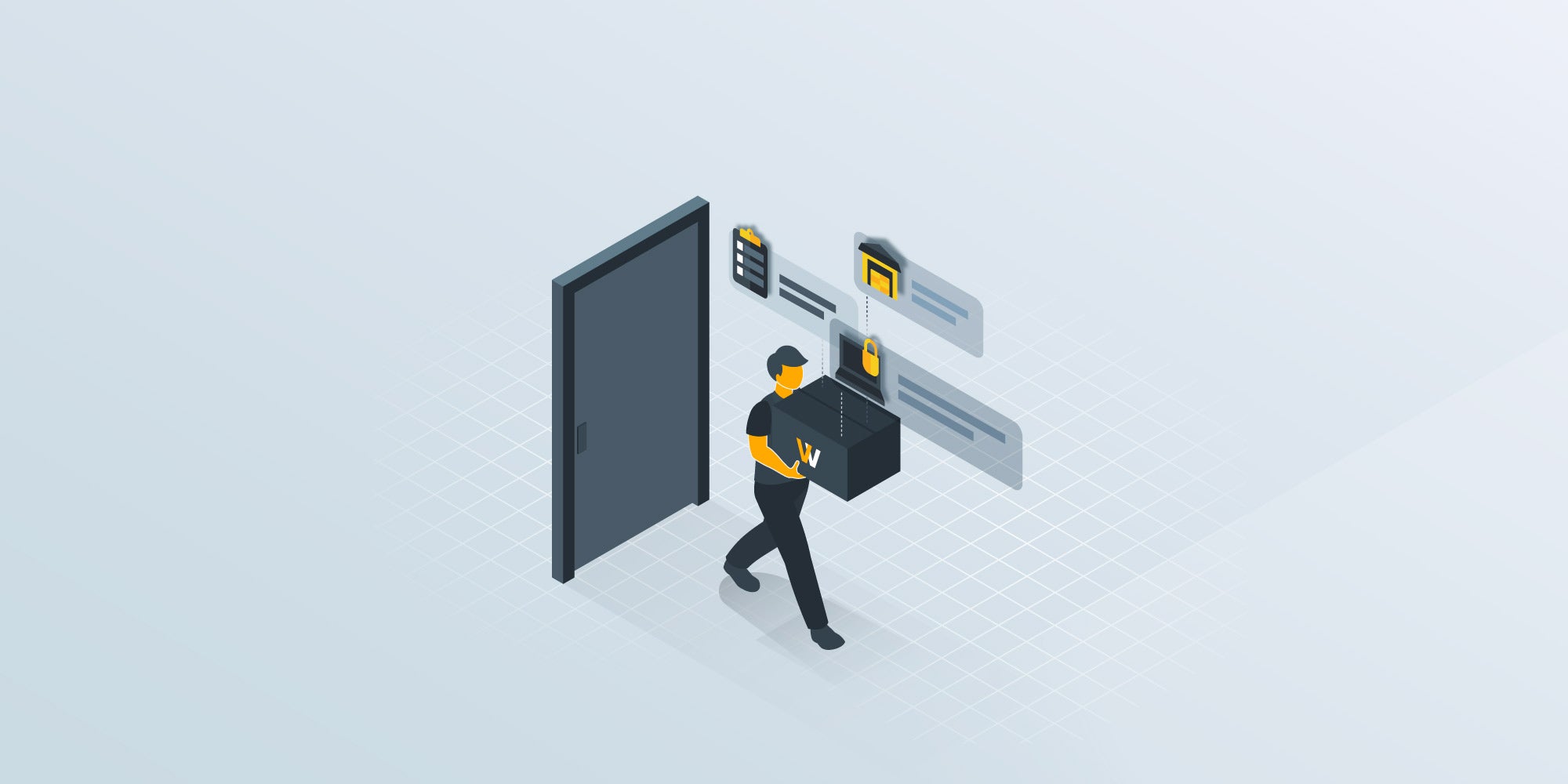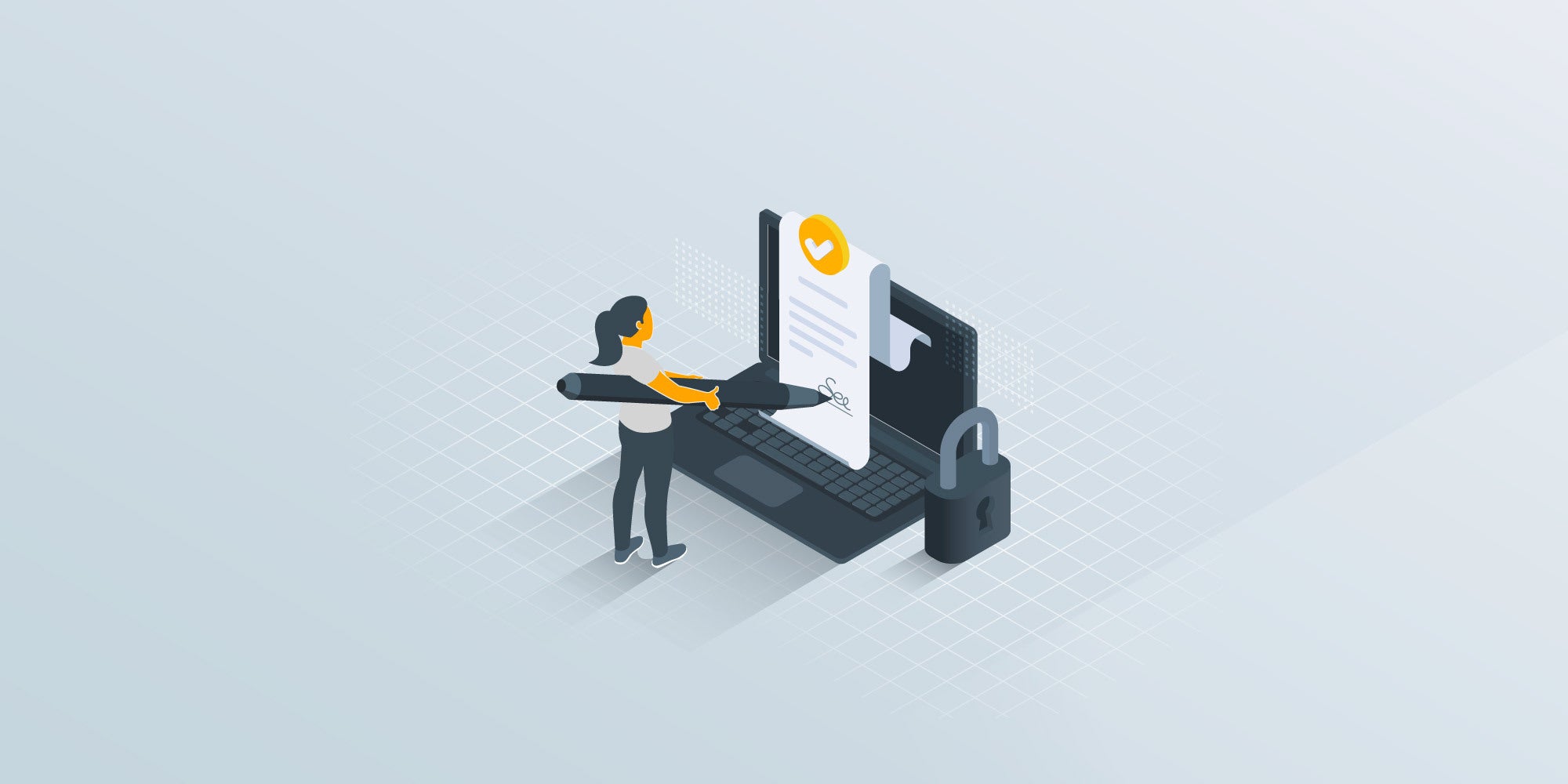Why you should buy equipment for remote employees instead of renting
 Mara Quintanilla
Mara Quintanilla
These days, business operations cannot go without IT equipment, so companies will find themselves looking for the best way to invest in procuring those assets. You may consider renting devices. Don't. Here's why buying equipment is vital in the long term.
We have previously discussed the pros and cons of buying vs. leasing IT equipment. Now we want to go into depth on the reasons why you should purchase equipment for remote employees.
The age-old question of buying vs. renting is ever more present in today’s landscape, where disruptive startups provide digital services for core business needs.
In a world where digital transformation has optimized and automated every possible service, it’s impossible to escape IT spending. Despite the rise of inflation rates and current levels of volatility, worldwide IT spending is projected to reach $4.5 trillion in 2022, according to Gartner.
John-David Lovelock, an executive at Gartner, states that companies that invest in the short term will fall behind in the medium term and risk permanence for the long term. Even if the world’s outlook is adverse, investing in IT will always have a high return on investment.
It’s especially important for remote companies or distributed teams to invest in the equipment their employees need. Not only is it paramount for keeping business running smoothly, but also for the long-term economic benefit of your organization.
With this in mind, it makes sense for companies to allocate resources to own that equipment. Let's take a look at the considerations and advantages of buying equipment.
What to consider when buying IT equipment
Providing equipment for a team distributed across the world may sound overwhelming in terms of logistics, let alone the financial aspect.
Some companies may choose to rent equipment, thinking operational costs will be a smaller burden than an upfront investment for their assets. However, buying equipment upfront can have a significant advantage over renting in the long run.
If you are still unsure whether buying is the best option for your business, here are three primary considerations to review when providing IT equipment for your teams.
Economic considerations

It can be tempting to opt for renting because of the seemingly low cost, but over time it's significantly more expensive than buying upfront. For example, the price of a pair of AirPods would be $800 over two years when leased through a rental service. In contrast, the upfront cost is just $399.
IT equipment, such as laptops and computers, are significant purchases companies make because they will be used for the long term. That’s why they are considered capital expenditures (CapEx).
Because rentals can be marked as the costs of day-to-day operations, they are considered operating expenses (OpEx).
Renting is attractive downstream. Smaller companies that are cost-sensitive prefer an OpEx vs. CapEx model, no matter how much more expensive that might be over time.
Upstream companies prefer to own. Not only do they have predictability over CapEx, but they also use the depreciation benefit as a tax shield.
Compliance considerations

The rise of remote work in recent years has made corporate compliance a pressing matter for companies, especially regarding sensitive data.
When company equipment is dispersed worldwide instead of inside the same building, regulations and standards must be in place to keep data safe.
The highest information security standards, like SOC2 or ISO 27001, require companies to own the equipment used by their employees to have control over the data that lives in those devices.
Rented equipment is owned by the lessor, not the lessee. This means that the equipment does not belong to the company and, therefore, can incur compliance violations.
Nowadays, the risks of data breaches to sensitive data are growing exponentially so companies must have control over their own devices. One way to avoid that is to look for equipment providers who can enroll devices under a mobile device management solution to care for security needs remotely.
The bottom line is that renting equipment just adds a layer of risk you do not want to take. The last thing your business needs is to worry about your gear being vulnerable to attacks or breaches.
Operational considerations

Companies with distributed teams have already procured millions of dollars worth of equipment, the more reason to closely monitor and manage it.
Owning your tech equipment allows you to have flexibility over how to manage it—on the other hand, renting means you have to follow the rules of the provider.
Businesses that wish to use an IT equipment management platform may struggle to fit their existing equipment if the service relies on rentals.
When you buy equipment through an IT asset management platform, such as GroWrk, you preserve the original flexibility you hoped to have when purchasing assets. We can take over your existing equipment and procure more according to your needs.
The Advantages of Buying vs. Renting in Brief:
- Renting is more expensive over time than buying upfront.
- Companies that purchase equipment have predictability over CapEx and can use the depreciation benefit as a tax shield.
- Information security standards require companies to own their equipment.
- Buying equipment allows companies to remain compliant.
- Equipment management is more flexible when companies purchase their own assets.
7 benefits of buying equipment for your remote employees
A company's ability to buy equipment will ultimately depend on business goals and financial capabilities, but it's not an option they should overlook. Let's look at the benefits of buying your own equipment.
- You don't have to pay for the equipment twice. When your employee leaves your company, there is no need to give back any leased equipment. If you own it outright, you keep it.
- It's less expensive in the long run. The monthly payments on a lease or rental can be equivalent to buying the same device twice, which means more money in your pocket to invest in other areas.
- You can upgrade or change devices without paying penalties or fees.
- Your company will save money on maintenance costs because you only have to pay for repairs or replacements if something goes wrong.
- You can keep track of the equipment's usage, which means you'll know when it's time to upgrade or replace a device before it breaks down.
- You can sell the device after its useful life has ended, which means you may recoup some of your costs.
- You can depreciate the equipment, which means you'll reduce your taxable income by writing off the cost of purchasing and maintaining this asset on your yearly taxes.
What are the advantages of buying equipment through an equipment management platform?

GroWrk is a smart equipment management platform for globally distributed teams. We streamline IT equipment procurement, deployment, and management so businesses can quickly scale worldwide.
Our platform lets you set up and onboard your teams in more than 150 countries in just a few clicks. You can make purchases and deliveries, handle collections, and more through our service. We sweat the logistics so you can focus on bringing value to your business.
When you purchase and manage equipment with GroWrk, you can:
- Purchase devices or bring your existing inventory. Our platform lets you manage both in the same place.
- Forget about finding partners in every country you hire. Our global supply chain partnerships make delivering devices to more than 150 countries easy.
- Ensure you remain compliant. We can image devices with your software or enroll them under your preferred Mobile Device Management solution to manage security needs remotely.
- Store equipment in-country. We store your equipment in a secure storage facility for as long as required.
- Deliver equipment on time. You can rest assured that your new hires will have their devices just in time for their first day.
- Handle offboardings and retrievals. When an employee leaves your team, we can recover their device and wipe it so you can use it again.
- Get 24/7 IT support. You'll be able to schedule maintenance, swap devices, and wipe disks, all in a single place.
Conclusion
Remote work has forever changed the workplace and it’s not going away soon. Companies that want to keep up with the future of work must allocate resources towards scaling and procuring the equipment their team needs.
A company's ability to purchase equipment often depends on its business goals and financial capabilities, but this option remains important because owning your equipment can bring significant value.
Buying makes sense from a financial and operational perspective, not to mention it helps companies stay compliant with infosec regulations and standards.
While paying upfront for equipment may seem like a significant investment, it is still less expensive than leasing and a decision that will make your business scale.
If you are looking for a partner to facilitate growth, consider GroWrk. We streamline the entire equipment management process, so your IT team can have more time to focus on the things that matter most. Book a demo today if you're ready to experience the future of work.






